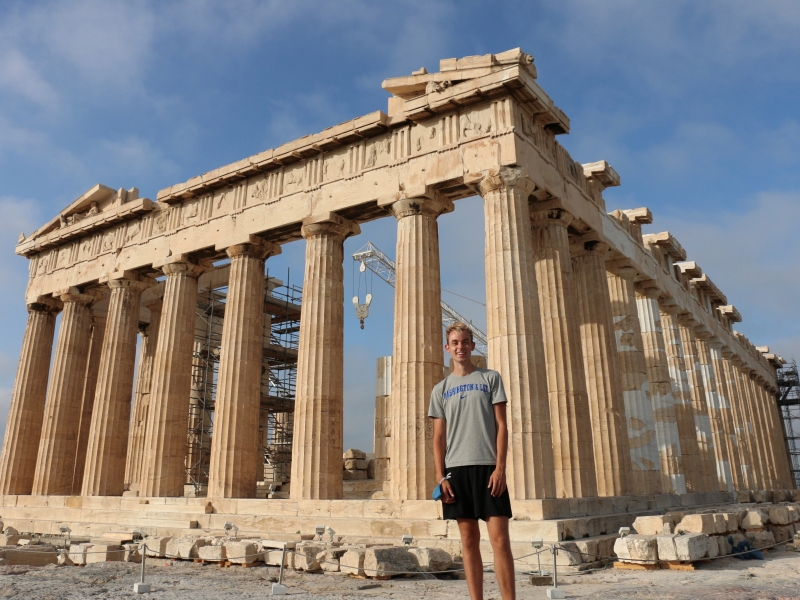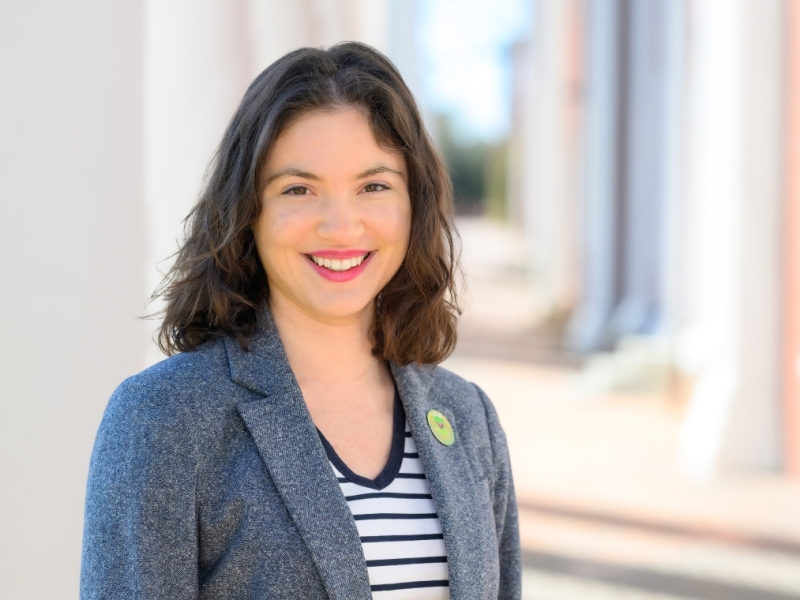
The Classics Department

The Classics Department offers a major in either Greek or Latin, or both ancient languages together, as well as courses of interest to all students, including Pompeii, the Age of Augustus, Ancient Epic, Greek Tragedy, Mythology, The World of Late Antiquity, etc. Believing strongly that the languages must be situated within their social contexts, we encourage student majors to explore offerings in Philosophy, History, Art History, Linguistics, Religion, Theatre, and Archaeology as well. See everything that Classics has to offer in the Course Catalog.
Courses for the major are listed in the University Catalogue under the separate headings of Classics, Greek, and Latin, as well as in other departments offering related courses (History, Religion, Philosophy, Art, etc).
The wide scope of Classics, and its emphasis on close study, analysis, and critical thinking makes the field an excellent preparation for a wide range of professions. Recent graduates are pursuing a variety of careers including academia, law, medicine, journalism, consulting, teaching, and public service. The Department’s small size ensures that every major receives personal guidance and instruction throughout his or her years at Washington and Lee.
Because W&L is a member of Sunoikisis, a collaborative virtual Classics Department sponsored by the Center for Hellenic Studies in Washington D.C., our faculty and advanced students may participate in the courses, conferences, archaeological expeditions, and other opportunities offered by this consortium. All collaborative courses are taught on campus by W&L faculty with the additional advantage of weekly online guest lectures and discussions with students and faculty from other participating colleges. For further information, click the link above or contact a faculty member.
We are a member of Eta Sigma Phi, the national collegiate Honor Society for students of Classics. Students who have formally declared Classics as a major, who have achieved a GPA of 3.7 or higher in the major, and 3.5 or higher overall, and who have successfully completed at least one course at the 300 level in either Latin or Greek may be recommended by the Classics faculty for membership. Invitations are issued at the end of winter term. Members of Eta Sigma Phi are eligible to apply for a variety of opportunities including prizes and scholarship support.
Department Info
- P: 540-458-8180
-
202 Tucker Hall
Washington and Lee University
Lexington, Virginia 24450











